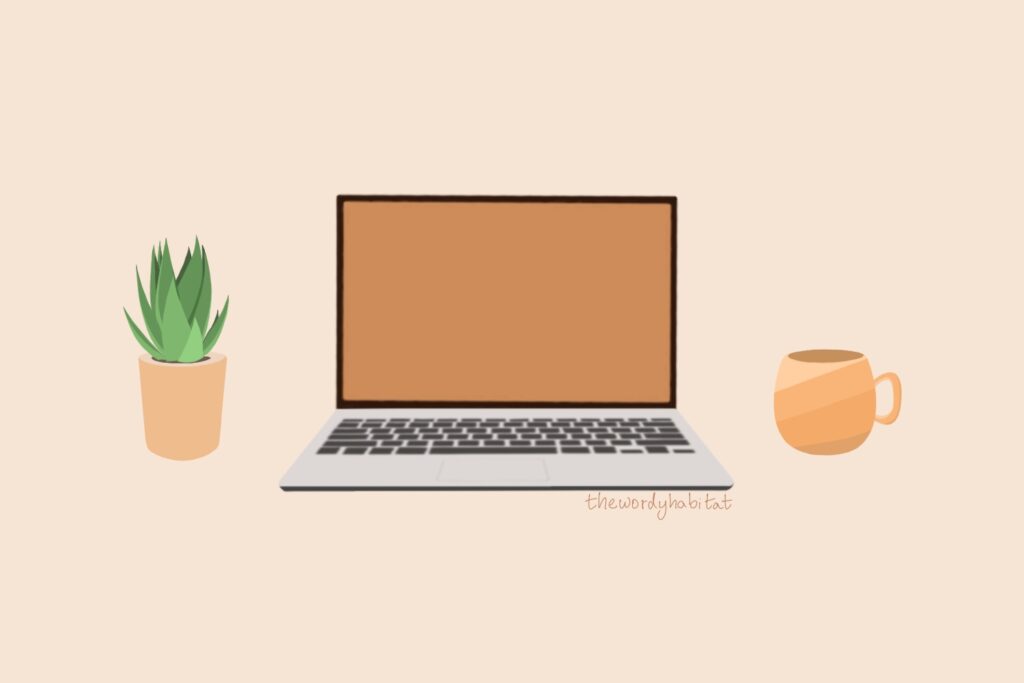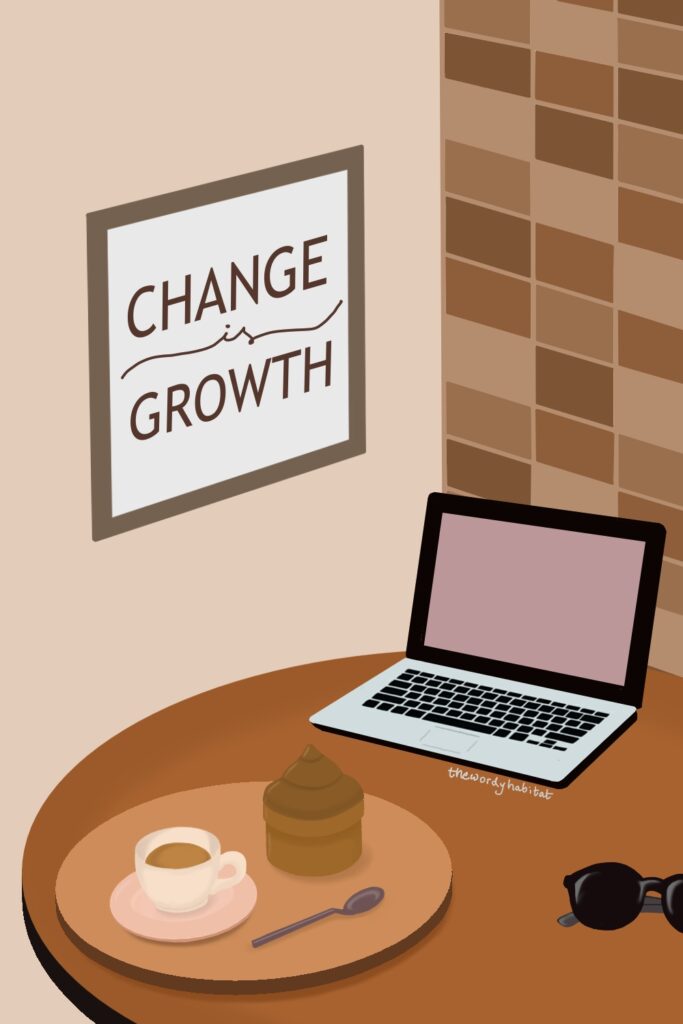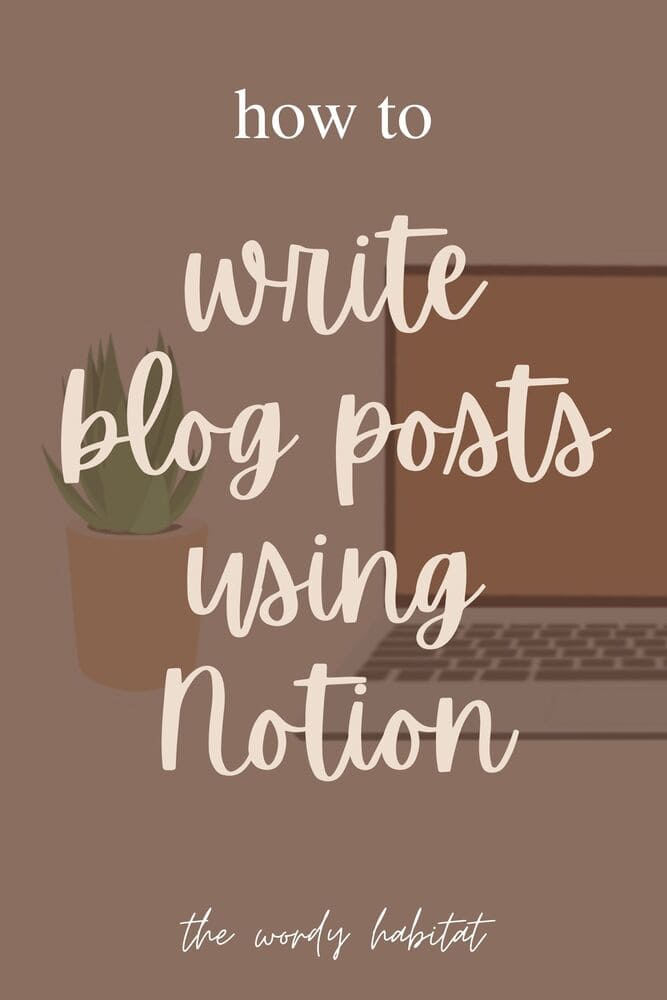
Planning and drafting blog posts take a lot of time. While it looks simple, there are multiple small steps to do in order to produce a good blog post that ticks all the boxes. My process has changed many times during my blogging journey but my current process with Notion is definitely the best.
Notion allows me to streamline my blog post writing process so that I can consistently publish great blog posts. I don't miss anything in my process now because it is laid out neatly. I can also easily look at the entire idea/concept and frame the post well.
Many bloggers (maybe you too!) are already using Notion for organization and hence, I'm not going to focus on that. I'll be talking about only drafting/writing blog posts in this post. Oh and I'm also going to be sharing a couple of Notion blog post templates to make things easier for you!
Note: this post is not sponsored by Notion. I wish haha.
what is Notion?
Notion is a free online organizational tool that allows a ton of flexibility and customization. Everything that you would need in an organizational system like tables, notes, tasks, etc., Notion has it. Hence, it is like a one-stop-shop for everything.
Notion is made up of components that can be linked or grouped together in pages. While it may take a little time to get used to and set up, it pays off in the long run by being very convenient and useful.
It is available as a website and mobile app so we can access it anytime from any device.
how to write blog posts using Notion
Let's go step-by-step! You can use this as a guide and set up your Notion while reading this post as well.
Otherwise, you can simply read through and use the Notion blog post templates that I've made for you!

1. decide your blog post writing process
If you started blogging recently or write blog posts on the fly, you might not know your process by parts. Take a few minutes to figure out your process and write down the different stages.
For example, my blog post writing process goes like this:
ideation -> writing -> illustrating -> checklist tasks -> scheduled
Your process may change over time depending on priorities and lifestyle. Before I rebranded with illustrations of my own, I didn't have "illustrating" in my process. But the stages generally stay the same for a long time.
2. make a Kanban board with the different stages
If you have not tried using Kanban boards before, get on it ASAP! It is one of the easiest ways to organize your work and quickly see where you are at. It is especially helpful if you work on multiple posts at once.
Making a Kanban board with all the stages in your process makes sure that you don't miss any stage before publishing your post.
Before using a Kanban board, I used to frequently forget to do my checklist tasks. Now, I can clearly follow a process and not miss anything, and hence every post comes out well.

3. decide your requirements
Most blog posts require some resources or an outline before you start writing them. Different types of posts can require different things too.
Note down what you generally require or keep in mind before you start writing a post. We'll use these things to set up a custom template.
For example, here are a few generic things that most bloggers require:
- title ideas
- notes/outline of the post
- links to add in the post
- articles to refer to when writing the content
- quotes to add in books reviews
- buy/affiliate links
- images
- videos to embed in the post
You might have the habit of realizing these things while writing blog posts. If so, make this list the next time you write a blog post. Take a minute to notice what all you need to look up or what external factors pause your flow of writing.

4. make a template!
Make a new template with whatever name you like and add sections for each of your requirements. Do try different layouts with the sections so that you get the best one for you. This template is NOT for filling in your blog post content. It is to support your writing in any way required.
Having a template eases your process by jump-starting your ideation process. You can open a new page, choose the template, and immediately have spots to fill in things.
This way, you will have all that you need ready before you start writing the post. You won't have to go looking for things that will end up breaking your creative flow. The only tab you need to have open is the Notion tab.
This also helps in determining if the post idea is a good one. You can quickly flesh out the idea in the template with post ideas, what images would go with it, what category it would come under. And hence you can easily determine if you want to write it or scrap it.
I would suggest making the template such that it flows from beginning to end of a blog post. For example, have things like title and featured image ideas at the top, then notes on the post, other images and links after it, and checklists at the end.

5. add checklists to your template
Checklists are very important in order to not miss anything. It is easy to forget small things like adding alt texts for images, setting the featured image, adding social media links, formatting etc.
Having checklists in place to tick off for every blog post idea will make sure that you don't miss any task. Some example checklists are pre-publish tasks, post-publish tasks, and SEO optimization tasks.
Add the lists that you would like to have to the template so that you have to check them off for every blog post. Consider your blog post "done" only if all of these are ticked.
Whether you do these before, during, or after writing is your choice. Just do them sometime!
6. start using your Notion setup to write blog posts!
Now that your Kanban board and template are ready, you can start using them!
The next time you have a blog post idea, make a new page with the template and simply start filling out the sections. Since there are multiple sections showing what you need, you will come up with ideas for everything. Simply seeing the sections will prompt you to think about them. This way, you can have an entire post concept in a few minutes.
You may want to tweak the template for the first few times that you use it, and that is normal! Edit until you have the perfect blog post template.
If you write blog posts that require wildly different things, make a template for each category! I used to have different templates for my discussions, book reviews, and Kdramas.
I'm sure that just by using a Kanban board and templates to keep track of everything related to blog posts, you WILL notice a difference in your content. So go ahead and start using them!

Notion templates for blog posts
If you have no idea where to start, are not sure about what to include in your templates, or simply want a Notion blog post template ready to use—I've got you covered.
I made a couple of Notion templates that you can use. One includes sections for SEO and the other doesn't. They are both quite generic to work for all bloggers so feel free to take and edit them to fit your process.
If you are already a part of the inner circle, you can directly access them in the resource library by using the password. Otherwise, you can sign up below to get instant access.
why I like to write blog posts using Notion
While every stage in the Kanban board and every section in my template has its advantages, I mostly love this system because it makes ideation easy and better.
I come up with blog post ideas as a whole. I think of titles, purpose, content outline, and category at the same time. So when I'm filling in the templates, I fill multiple sections very quickly in order to get my ideas down. They're not even full words or sentences. I just note words that make sense and flesh it out later.
Before, I had to figure out what to write about during ideation. Because my ideas are not only content. I think of the category, marketability (will readers want it), keywords (if I want to rank on search engines), inter-linking (can I link it with other posts of mine), and more.
Having a standard template (I use only one for all posts) has made it easier for me to come up with ideas. Just seeing the different section headings makes me think about them. So I come up with a barebones concept and make it a good one later.
This also helps me turn an abstract concept like "blogging with Notion" into specific ideas like "writing blog posts with Notion". It is easier to see what topic to write on based on ideas and outlines.
If you're curious, you can check out my Notion tour that I filmed back when I first set up my Notion. It has changed a lot since then, though. Let me know if you'd like to see an updated tour along with a full explanation of my blog post writing process!
I also love Notion because I use it to organize everything related to my blog other than writing like newsletter planning, blog maintenance, and more. It's so helpful.
endnotes
Everyone's process is different and what specifics work for me may not work for you. I deliberately kept this guide generic because the specific stages and sections depend on what process you follow.
You can also use this to set a process if you don't already have one. Think about the process that you would like to follow, based on what you want to prioritize.
If you have any doubts, need help or would like to discuss with someone, feel free to DM me on Twitter or Instagram.

be wordy with me!
Do you have a standardized system for writing blog posts? How do you plan your content? Do you use Notion already?
If this post was helpful, please consider buying me a coffee in appreciation! ☕


I have some questions. I barely began trying to figure out the whole blogging world. Most everyone online recomends wordpress, however since I was already using notion for organization and inspiration purposes, I accidently came across how to blog on there, and so I have my first blog post on notion . The next step for me is to buy a domain but I'm wondering if its worth it to purchase a domain for notion or rather go straight to wordpress , since it's what I've seen been recommended, and I want my posts to have the most possible views. Then there's the fact that I haven't been able to properly import my notion blog posts into wordpress, it doesnt look nice, shows some coding, and pictures wont show etc,. And so I found this post recommending notion, however I notice you're powered by wordpress, so...help?! please!
Hi! I use Notion to only draft/write blog posts and then later post them on WordPress, and that is how this guide is written as well. It is meant to be a guide for just ~writing~ posts on Notion using a template and organizing your drafts and ideas on Notion. Although there are ways to have a beautiful blog on Notion, WordPress provides a community and follow feature that Notion doesn't. Hence, most people prefer WordPress. I personally recommend Notion for organization and back-end purposes and WordPress for the actual blog.
This is a must try. Will see how I get on.
Good luck! Notion takes a little bit of time to setup and get used to but is worth it.
Thanks for the great article! I am a extremly unorganized person and especially for my new blog. Hopefully I can use Notion to help me fix that, although I hate how Notion cannot be used offline.
Website looks great btw! Simple, with a "fall" vibe from the colors and nice font. Also love the art. 🙂
Thank you so much, Liam! I agree, Notion is a little frustrating how it can't be used offline but that means it syncs all changes across devices immediately, which is a plus.
Thank you! Glad you like it ?